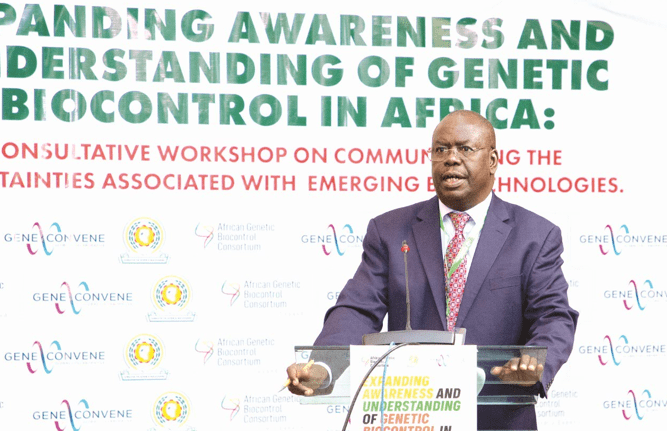Scientists’ novel technology to conserve mosquitoes

As the world celebrates World Mosquito Day today, scientists have introduced a revolutionary technology that could conserve mosquitoes instead of killing them while eliminating some of the diseases transmitted by mosquitos.
Known as gene drive technology, this innovative approach promises to eliminate malaria one of the diseases that is transmitted by mosquitos without harming the mosquito population a crucial aspect that could make this solution both effective and environmentally sustainable.
“Gene drives have been successfully tested in laboratory settings to reduce mosquito fertility and spread resistance genes against the malaria parasite. There are field trials and pilot studies underway to test the effectiveness and safety of gene drives in real-world environments,” says Dr Willy Tonui.
Tonui, the Chairman and Executive Director at Environmental Health Safety (EHS Consultancy Ltd) also doubles up as the Founder and Head of the Secretariat at the African Genetic Biocontrol Consortium.
Zero malaria target
This innovative technology aligns perfectly with this year’s World Mosquito Day 2024 which is ‘Reaching the zero malaria target’ because the technology is offering a sustainable and environmentally conscious solution to eliminate malaria, a disease that still claims hundreds of thousands of lives each year.
As of 2022, there were an estimated 608,000 global deaths due to malaria. This represents a slight decrease from the previous year but still highlights the ongoing impact of the disease, especially in high-burden countries. The majority of these deaths occurred in Africa, where the disease burden is highest.
Speaking in Abuja, Nigeria during the workshop on expanding awareness and understanding of the genetic biocontrol in Africa, Dr Tonui said that this is a major breakthrough because traditional methods of controlling malaria have heavily relied on insecticides and mosquito nets, aimed at either killing the mosquitoes or preventing them from biting humans.
While these measures have had some success in reducing malaria cases, they often lead to unintended ecological consequences, such as the development of insecticide resistance and the disruption of local ecosystems.
Paradigm shift
Gene drive technology, however, represents a paradigm shift in malaria control. Instead of killing mosquitoes, this method involves genetically modifying the insects to either become resistant to the malaria parasite or to reduce their ability to transmit it.
“These genetic modifications are designed to spread rapidly through mosquito populations, thanks to a mechanism that ensures the altered gene is passed on to nearly all offspring, rather than the typical 50 per cent in natural inheritance,” he said.
According to Dr. Agha Ukpai Agha, Acting Director of the National Biosafety Management Agency, Nigeria, this approach has garnered significant attention and excitement within the scientific community, as it offers a potentially permanent solution to malaria.
“Unlike insecticides, which require continuous application and monitoring, gene drive could lead to a self-sustaining reduction in malaria transmission. Additionally, by not wiping out mosquito populations, the technology helps preserve the ecological balance, which is essential for maintaining biodiversity,” says Dr. Agha.
However, according to Dr. Tonui the introduction of gene drive technology is not without its challenges and ethical considerations. There are concerns about the potential for unintended consequences, such as the spread of the modified genes to non-target species or ecosystems.
To address these concerns, scientists are conducting rigorous testing in controlled environments to assess the safety and efficacy of the technology before any large-scale implementation.
“If successful, gene drive technology could mark a turning point in the global fight against malaria, a disease that continues to claim hundreds of thousands of lives each year, particularly in sub-Saharan Africa. The World Health Organization (WHO) has already expressed cautious optimism about the potential of this technology, noting that it could complement existing malaria control measures and accelerate progress towards the goal of eradicating the disease by 2030,” he said.









